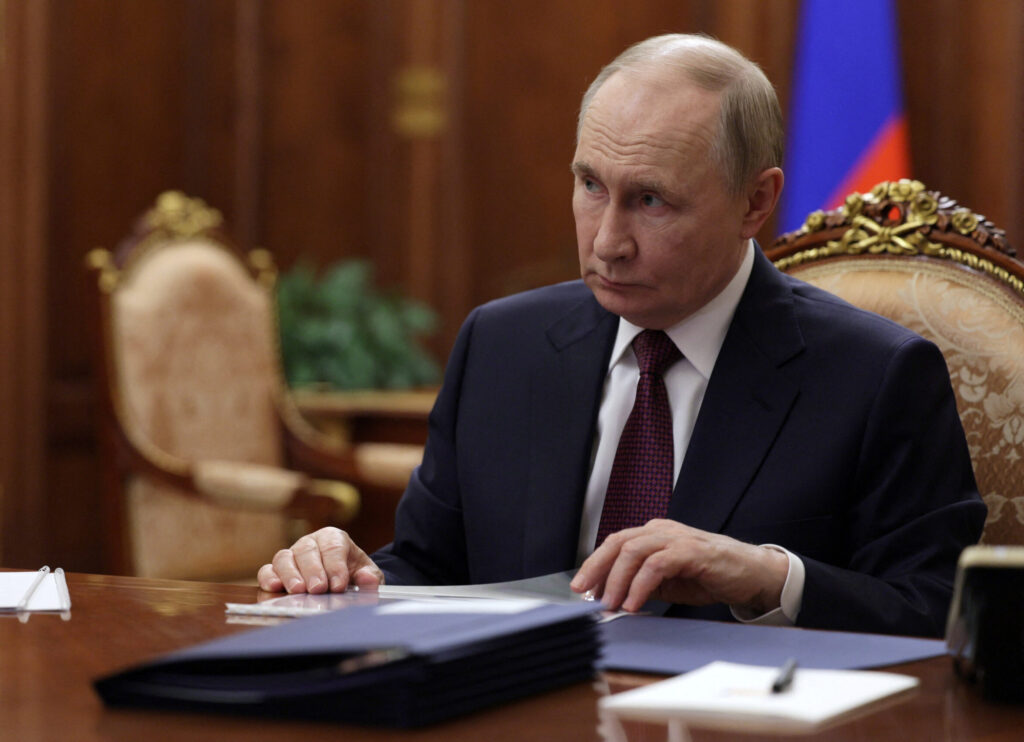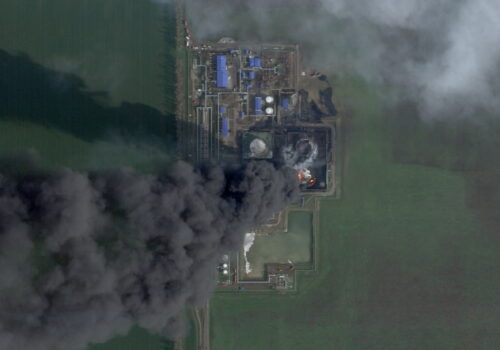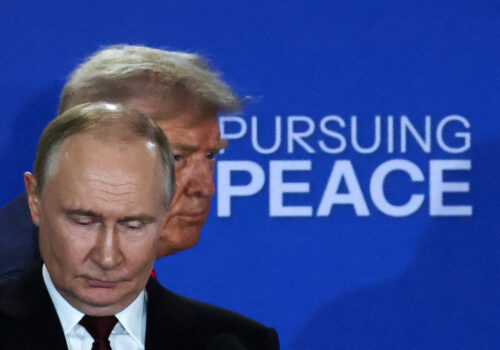While international attention focuses on faltering US-led efforts to broker a peace deal and end the Russian invasion of Ukraine, the Kremlin’s broader hybrid war against Europe continues to escalate. This campaign of unconventional warfare has been gaining pace for a number of years and poses significant security challenges that require greater coordination among European governments.
The European Union’s top diplomat, Kaja Kallas, highlighted the scale of the danger in a July statement condemning what she called “Russia’s persistent hybrid campaigns” against EU member states. According to Kallas, the list of Russian hybrid warfare activities in Europe includes cyber attacks, sabotage, disruption of critical infrastructure, physical attacks, information manipulation and interference, and other covert or coercive actions.
The Putin regime has spent more than a decade refining its hybrid warfare playbook. Many of the tactics currently being utilized against EU countries were first developed during the initial stage of Russia’s war in Ukraine, beginning in 2014. This allowed the Kremlin to maintain a degree of plausible deniability while actively working to destabilize and weaken the Ukrainian state from within. Since the onset of Russia’s full-scale invasion of Ukraine in February 2022, the Kremlin’s hybrid war against Europe has also entered a new and more intensive phase.
Stay updated
As the world watches the Russian invasion of Ukraine unfold, UkraineAlert delivers the best Atlantic Council expert insight and analysis on Ukraine twice a week directly to your inbox.
European intelligence officials told the Associated Press in July that the risk of serious injury or death is rising across Europe amid claims that Russia is recruiting untrained saboteurs via the internet to set fires near homes and businesses, plant explosives, and build bombs. Russia has reportedly been forced to rely increasingly on amateurs as hundreds of Moscow’s own spies have been expelled from European countries in recent years amid growing tensions between Russia and the West.
Russia currently stands accused of committing a variety of increasingly ambitious acts of aggression inside the European Union. In Poland, a massive fire that destroyed over 1,400 shops and service outlets in a Warsaw shopping center has been linked to Russian intelligence, prompting the closure of Russia’s Krakow consulate in May 2025.
Meanwhile, in a further example of the trend to recruit saboteurs via social media, a UK court convicted three men in July over their role in a Kremlin-linked arson attack on a London warehouse storing aid and equipment bound for Ukraine. During the trial, the defendants confirmed that the warehouse was just one of multiple targets identified by their handlers.
Eurasia Center events

Over the past year, the Baltic Sea has become a key focus for the Kremlin’s hybrid offensive, with Moscow accused of using its shadow fleet of vessels to conduct sabotage operations targeting undersea cables. In August, the Finnish authorities charged the captain of a tanker believed to be part of Russia’s shadow fleet with dragging an anchor along the Gulf of Finland seabed and cutting five undersea cables, causing tens of millions of euros in damage.
In addition to undersea operations, Moscow is alleged to have engaged in GPS jamming in the Baltic region as part of efforts to disrupt civil aviation. In May 2025, officials from Latvia’s Defense Intelligence and Security Service issued a report stating that the Kremlin may be using agents posing as tourists to spy and conduct sabotage operations in the Baltic and across Europe. “The Ukrainian experience shows that Russian special services are able to adapt,” the report warned. Neighboring Lithuania has also accused Russia of being behind a number of recent arson attacks.
Russia favors hybrid warfare as this allows the Kremlin to destabilize Europe and undermine support for Ukraine without crossing the threshold and provoking a military response. Europe’s reaction to Putin’s hybrid war tactics has also been hampered by a lack of coordination among target countries. While NATO’s Joint Intelligence and Security Division and the EU’s East StratCom task force play valuable roles in efforts to monitor potential threats and investigate Russian involvement, most countermeasures remain fragmented.
Looking ahead, Russia’s escalating hybrid war against Europe demands a more integrated and agile response. Suspected examples of hybrid aggression should not be viewed in isolation. Instead, they should be treated as part of a broader Kremlin campaign. In order to respond effectively, European countries must work together to fund and develop new security structures capable of both identifying and addressing Russian hybrid operations effectively.
As European countries race to rearm in order to counter the military threat posed by a resurgent and expansionist Russia, they must also acknowledge that hybrid hostilities with the Kremlin are already underway. Many European governments are well aware of this fact, but the absence of a more coherent collective response currently leaves all of Europe at a distinct disadvantage.
Maksym Beznosiuk is a strategic policy specialist whose work focuses on Russia’s evolving military and hybrid strategy, EU-Ukraine cooperation, and Ukraine’s reconstruction.
Further reading
The views expressed in UkraineAlert are solely those of the authors and do not necessarily reflect the views of the Atlantic Council, its staff, or its supporters.

The Eurasia Center’s mission is to enhance transatlantic cooperation in promoting stability, democratic values, and prosperity in Eurasia, from Eastern Europe and Turkey in the West to the Caucasus, Russia, and Central Asia in the East.
Follow us on social media
and support our work
Image: Russian President Vladimir Putin attends a meeting with Deputy Prime Minister Dmitry Grigorenko in Moscow. August 25, 2025. Sputnik/Vyacheslav Prokofyev/Pool via REUTERS




